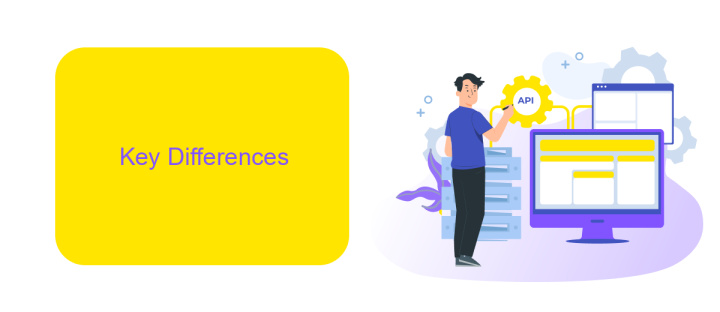Jitsu Vs Airbyte
In the rapidly evolving world of data integration, choosing the right tool is crucial for efficient data management. Jitsu and Airbyte are two prominent open-source platforms that have garnered attention for their robust capabilities. This article delves into a comparative analysis of Jitsu vs Airbyte, exploring their features, strengths, and potential use cases to help you make an informed decision.
Introduction
In the rapidly evolving landscape of data integration, two prominent tools have emerged as frontrunners: Jitsu and Airbyte. Both platforms aim to simplify the process of data ingestion and transformation, making it easier for businesses to consolidate their data from various sources. However, each tool offers unique features and capabilities that cater to different needs and use cases.
- Jitsu: An open-source data integration tool focused on real-time data streaming and event collection.
- Airbyte: An open-source platform designed for ELT (Extract, Load, Transform) processes, supporting a wide range of connectors.
- ApiX-Drive: A versatile service that facilitates seamless integration between various applications and data sources, enhancing the capabilities of tools like Jitsu and Airbyte.
Choosing the right data integration tool depends on various factors such as the specific requirements of your data workflows, the complexity of your data sources, and the level of customization needed. This article will delve into a detailed comparison of Jitsu and Airbyte, highlighting their strengths, weaknesses, and ideal use cases to help you make an informed decision.
Key Differences

Jitsu and Airbyte are both powerful tools for data integration, but they serve different purposes and have unique features. Jitsu is primarily focused on real-time data collection and event streaming, making it ideal for businesses that need to process and analyze data as it comes in. On the other hand, Airbyte offers a more comprehensive data integration solution with a vast array of pre-built connectors, making it easier to integrate data from various sources into a centralized data warehouse.
Another key difference lies in their deployment and customization capabilities. Jitsu is open-source and highly customizable, allowing developers to tailor it to specific needs and deploy it on their own infrastructure. Airbyte, while also open-source, emphasizes ease of use with its user-friendly interface and managed cloud service options. For those looking for additional integration solutions, services like ApiX-Drive can be leveraged to streamline the process further, providing a seamless way to connect various applications without extensive coding.
Similarities

Both Jitsu and Airbyte are open-source data integration platforms designed to streamline the process of collecting and transferring data from various sources to data warehouses. They aim to make data integration more accessible and efficient for businesses of all sizes.
- Both platforms support a wide range of data sources and destinations, making it easier to connect disparate systems.
- They offer robust community support and extensive documentation, which helps users troubleshoot and optimize their data pipelines.
- Both Jitsu and Airbyte provide real-time data synchronization, ensuring that the data in your warehouse is always up-to-date.
Additionally, services like ApiX-Drive can further enhance the capabilities of these platforms by offering pre-built integrations and automation tools. This allows users to set up and manage their data pipelines with minimal manual intervention, thereby saving time and reducing the risk of errors.
Use Cases

When comparing Jitsu and Airbyte, it's essential to understand their distinct use cases. Both platforms are designed to handle data integration, but they cater to different needs and scenarios.
Jitsu is highly suitable for real-time data collection and routing. It excels in scenarios where immediate data availability is crucial, such as monitoring user activity on a website or app. Jitsu's strength lies in its ability to capture and deliver data with minimal delay, making it ideal for dynamic environments.
- Real-time user activity tracking
- Data routing for dynamic applications
- Immediate data availability for analytics
On the other hand, Airbyte is designed for robust ETL (Extract, Transform, Load) processes. It is perfect for enterprises that require extensive data integration from various sources into a centralized data warehouse. With its vast array of connectors, Airbyte simplifies the process of aggregating data from disparate systems. For businesses looking to streamline their integrations, services like ApiX-Drive can further enhance the efficiency of these processes by automating and managing the data flow between different platforms seamlessly.
Conclusion
In conclusion, both Jitsu and Airbyte offer robust solutions for data integration and ETL processes, each with its unique strengths and features. Jitsu excels in real-time data collection and offers a straightforward setup, making it an excellent choice for businesses that require immediate data processing. On the other hand, Airbyte provides a highly customizable and open-source platform, ideal for organizations that need extensive flexibility and control over their data pipelines.
Choosing between Jitsu and Airbyte ultimately depends on your specific needs and technical requirements. For those seeking a more user-friendly and automated approach, services like ApiX-Drive can further simplify the integration process, bridging the gap between various applications and ensuring seamless data flow. By carefully evaluating your business objectives and technical capabilities, you can select the most suitable tool to enhance your data integration strategy and drive better decision-making.


FAQ
What is the primary difference between Jitsu and Airbyte?
Can Jitsu and Airbyte be used together?
Which tool is better for real-time data streaming?
Is it difficult to set up integrations with Jitsu and Airbyte?
Do Jitsu and Airbyte support custom data transformations?
Do you want to achieve your goals in business, career and life faster and better? Do it with ApiX-Drive – a tool that will remove a significant part of the routine from workflows and free up additional time to achieve your goals. Test the capabilities of Apix-Drive for free – see for yourself the effectiveness of the tool.

